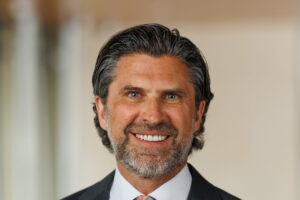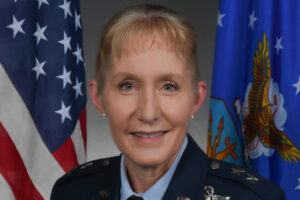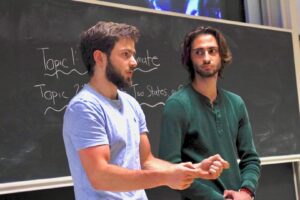Campus Kudos
Math professor honored with teaching award
Kathy Davis, associate chair of the Department of Mathematics and undergraduate mathematics adviser for the College of Natural Sciences, has been honored as the recipient of the 2010 Division of Instructional Innovation and Assessment Award for Excellence in Teaching. The award recognizes engaged, dynamic instructors who inspire others, embrace innovation, collaborate with colleagues, assess teaching and learning, and use technology to engage students.
Engineer leads team mapping Haiti destruction
Ellen Rathje, a civil engineering professor in the Cockrell School of Engineering, will work with a team of engineers and scientist to create detailed mapping and surveying of Haiti’s damaged areas. To develop safer, future engineering design procedures, the seven-person team will spend an intensive week documenting the effects of the magnitude 7.0 earthquake. Their efforts are sponsored by the Geo-engineering Extreme Events Reconnaissance Association, which is supported by the National Science Foundation.
President Powers co-authors tort law restatement for American Law Institute
President William Powers Jr., along with Michael D. Green Jr., professor at the Wake Forest University School of Law, co-authored the American Law Institute’s first volume of its “Restatement Third, Torts: Liability for Physical and Emotional Harm,” an updated and sweeping treatise on the law of torts. The Restatement constitutes a synthesis of current tort law and a guide to what it should become. According to Lawrence Sager, dean of the School of Law, it will be relied upon heavily by lawyers and judges.
President Obama honors College of Education alumna
College of Education alumna Candy Ellard was honored by President Obama with a Presidential Award for Excellence in Mathematics and Science Teaching at a White House event focused on Science, Technology, Engineering and Mathematics (STEM) education. Ellard has worked with the UTeach program for the past seven years, in addition to being a science and mathematics teacher at Pillow Elementary School in Austin.
Press Mentions
USA Today: More court cases to test campaign-finance limits
Jan. 26
With corporations and unions now free to spend unlimited amounts on campaign ads, a series of court challenges coast-to-coast could unravel other campaign-finance restrictions — including limits on contributions to political groups.
Election law experts, such as [election law expert at Loyola Law School Richard] Hasen and University of Texas government professor Brian Roberts, say the change in the court’s composition has given fresh hope to groups that oppose limits on campaign spending.
“The climate on the Supreme Court is different, and people like [Republican lawyer from Terre Haute, Ind.] James Bopp see the opportunity to recast campaign-finance legislation,” Roberts said. “The big question is how far the court is willing to go.”
New York Times: Mexico: Maya tomb find could help explain collapse
Jan. 28
Mexican archaeologists have found an 1,100-year-old tomb from the twilight of the Maya civilization that they hope may shed light on what happened to the once-glorious culture.
Archaeologists not connected with the dig expressed caution about drawing conclusions from one site, noting the Maya empire covered a wide area, with a varied and complex history.
”One tomb, even if it is very fancy, isn’t going to answer big things about the trajectory of Maya history all over the place … maybe locally,” said David Stuart, a specialist in Mayan epigraphy at The University of Texas at Austin.
CNN: Obama is ‘somber’, but dynamic in speeches, analyst says
Jan. 28
When it comes to word choice, President Obama is less positive than any president in modern time, according to a scholar who has dissected the language of State of the Union speeches since Harry Truman’s 1946 address.
James Pennebaker, professor and chairman of the psychology department at The University of Texas at Austin, theorizes that the language that presidents use in these high-profile speeches reflects their overall mood and state of mind.
The president isn’t negative per se, Pennebaker said, but he doesn’t use as many words such as “happy,” “excited,” “enjoyed,” “good” and “nice” that have positive tones, making his tone more somber.
New York Times: When a portfolio is red or blue
Jan. 30
You’re likely to feel more confident about the economy when your political party is in power. That’s no surprise. But a new study has found that your feelings probably affect the way you invest your stock portfolio.
The study, “Political Climate, Optimism, and Investment Decisions,” focused on investor behavior from 1991 to 2002, a span that included years when each of the major political parties controlled both the White House and Congress. The authors are Yosef Bonaparte, an economics professor at the University of Southern Mississippi; Alok Kumar, a finance professor at the McCombs School of Business at The University of Texas at Austin; and Jeremy Page, a doctoral student at that institution.



